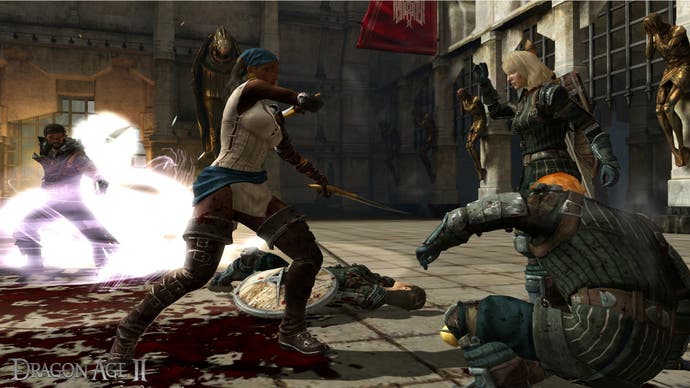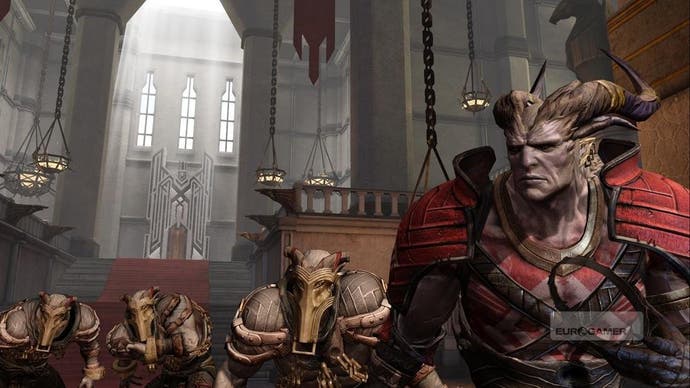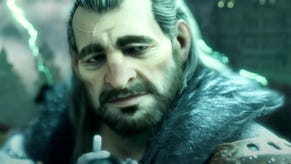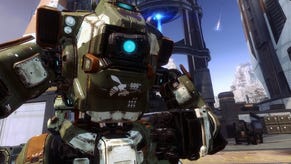Dragon Age II
The second cut is the deepest.
However, the game requires no small amount of patience from the player and a willingness to submit to the long-term narrative plan. With no overriding menace to keep you on track the three acts tend to clunk into one another, only revealing their shape after many hours of dutiful questing. The payoff is worth it, but the cast of new companions doesn't do much to inspire you to delve deeper.
They actually prove to be fairly deep and interesting characters by the end, but there's nobody who compares to instantly appealing fan favourites such as Morrigan, Sten, Zevram and Shale. This fresh crew of dwarves, elves, mages and warriors takes its time to win you over. I spent a lot of time quietly hoping for more of the cynical humour and colourful dialogue that typified Origins.
Hawke is a curiously inert lead who never quite makes himself (or herself) memorable, regardless of your actions. He's an improvement over the anonymous mutes you controlled in the previous adventure but he's no Commander Shepherd, able to instantly inspire devotion from both cast and player alike.
It doesn't help that importing a save from Origins seems to have little obvious impact on the gameworld. A couple of welcome cameos aside, I saw nothing to suggest any of my decisions had carried over from Ferelden to Kirkwall.

In gameplay terms, much has changed from Origins. Everything from skill trees to quest notifications have been redesigned and made easier to use. "Dumbing down!" goes the cry from the pessimistic faithful, and those coming to the game with that mantra in mind will find that confirmation bias supports their prejudice.
"Streamlined!" responds Bioware. The truth lies somewhere in between as the game walks a delicate, sometimes wobbly line between clutter-free immersion and the sort of menu-delving depth that RPG fans expect.
In combat this manifests as a more real-time experience. Every basic attack is now triggered by a button press rather than the activate-and-watch method of old. To begin with, it feels weird. Mashing the A button over and over is quite clearly Not RPG.
But as with all things Dragon Age, the wisdom in the change becomes clearer over time. Once you've added some extra ability shortcuts to your battle menu the tactical nature shimmies into focus.

The shift to a more immediate combat style allows you to react quickly to the field. Every sword swing, every arrow fired, every spell unleashed is now at your command, and it can't help but make the fights feel more visceral and satisfying – especially when you're able to explode enemies into bloody chunks.
The fact there's no way of going back to the old method suggests Bioware has no patience for those who insist on keeping the status quo. You can still use the radial menu to pause the action and hop from character to character, but combat is too fast and frantic for this to ever feel natural. As a tactical combat tool it's past its sell-by date, and you end up getting used to the new style by default.
The shadow of Mass Effect 2 looms large over many of the changes, especially where companions and inventories are concerned. Your control over these areas has received some of the most noticeable cuts. Companion armour is now completely off-limits while upgrade trees are inflexible and closed off to any new specialisms you might want to give them.








